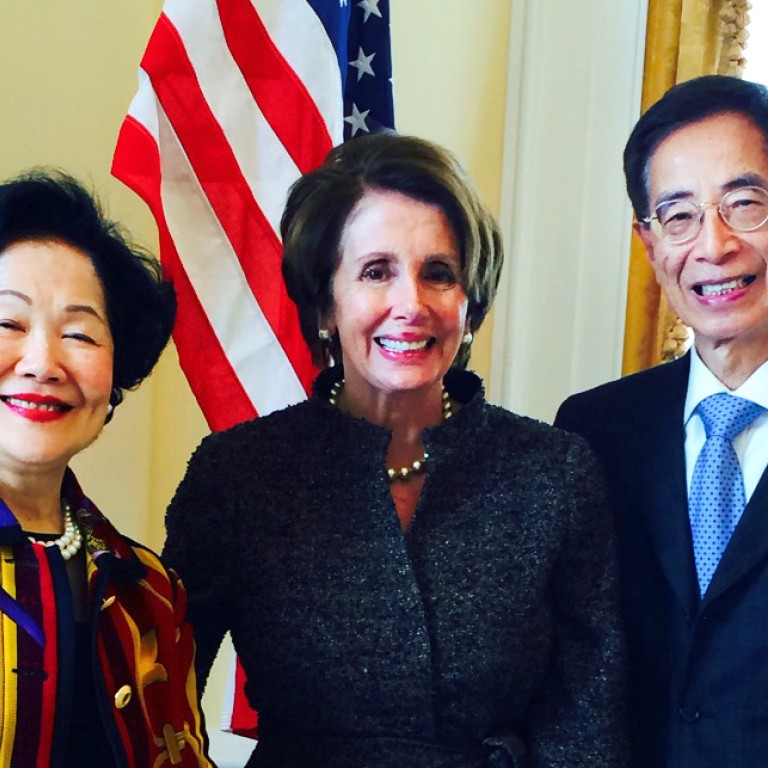
Plural voices on international stage boost Hong Kong's image
Stephen Vines says travelling non-officials are right to speak their mind
Readers concerned over foreign intervention in Hong Kong affairs will be shocked to learn that no less a person than Chief Executive Leung Chun-ying spent part of last Tuesday conferring with a US congressional delegation.
Leung was quoted as saying he hopes to continue frequent exchanges and co-operation with the United States on all fronts.
It gets worse because he met another US delegation in February and went so far as to visit New York last year. Leung not only discusses a "wide range of issues" with Americans, but in the last 12 months he has also conferred with government leaders from Britain, Australia, Romania, Belgium, Sweden, New Zealand and the European Commission.
The press release concerning his most recent talks stresses Hong Kong's role as an international city, and this theme of its internationalism figures large in government statements, ranging from a wonderful preoccupation with world comparison league tables to the city's attempts to host international events.
Internationalism, however, apparently has its limits, as has been seen recently in the barrage of criticism facing Anson Chan Fang On-sang and Martin Lee Chu-ming for their temerity in having travelled to the US to discuss Hong Kong's political situation.
Official mainland media and its echo chorus in Hong Kong have denounced the pair for inviting unwarranted foreign meddling in China's sovereign affairs, and there has been dark muttering about their alleged "treachery". It seems that Asia's World City is only international up to a point and that point is reached when voices other than those of the non-elected officials are aired overseas.
It is hard to exaggerate just how insular this view of the outside world is. The reality is that it is commonplace for opposition figures and non-government personalities to travel the world discussing the affairs of their countries.
I know this from first-hand experience while working in the international department of one of Britain's main political parties, where one of my jobs was to organise overseas trips for party officials both during the period when the party was in office and in opposition. We also arranged to host any number of delegations from overseas.
Hong Kong, however, is supposed to exist on another planet where only the government is allowed to discuss domestic affairs with foreigners. This bizarre view of how internationalism works is widely shared among dictatorships. The old Soviet Union spared no effort to denounce its citizens who criticised government policy overseas and regularly branded them as traitors.
Today we have the government in Beijing upholding this dismal tradition.
Hong Kong's situation is unusual because there is considerable freedom to express views inside the territory, something denied in dictatorships, yet when this criticism is aired abroad a furore emerges.
Lost in this tempest is the understanding that when Chan and Lee and other political figures travel abroad, they provide affirmation that some forms of pluralism still exist in Hong Kong, and this reinforces the image of the city's distinctive role within the Chinese state.
It is unsurprising that the people who want to eradicate Hong Kong's distinctiveness shout the loudest about "unauthorised" discussion of local affairs overseas, but it is disappointing that those who take part in this activity are so defensive.
On the contrary they should loudly proclaim the benefits of their efforts.
Should the day dawn when the rest of the world only hears one version of what's happening in Hong Kong, we will have reached a dire stage in the city's development.

